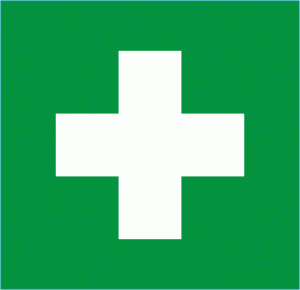A knowledge of basic first aid can make the difference between life and death. Let’s take a look at some statistics:
- Cardiovascular disease (which include heart attacks and strokes) is the leading cause of death globally. In 2015 it is estimated that a staggering 7.4 million people died from coronary heart disease and 6.7 million from strokes worldwide. [1]
- In 2016, there were 37,461 traffic related fatalities in the US [2]. In the same year the UK saw 1,792 fatalities on it’s roads with another 24,101 seriously injured [3].
- It’s estimated that in 2014 more than 3 million people worldwide suffered a non-fatal accident at work [4].
However, its not all doom & gloom. Several studies have shown that effective first aid can be vital in the first few minutes after an emergency. There are numerous stories in the media about how first aid performed by everyday people has saved lives.
Finally, first aid is an important lifeskill. A first aid qualification can help your CV/personal statement, or even open up job opportunities. There are also countless opportunities to volunteer your first aid skills to support charities.
So you want to learn first aid? Fantastic! Let’s get started by looking at the big principles of first aid:
The aims of first aid
There are three main aims of first aid:
Preserve life: Your first aim is to preserve life by carrying out emergency first aid procedures (for example, opening a casualty’s airway or performing cardiopulmonary resuscitation).
Prevent deterioration: Secondly, you should attempt to prevent the casualty’s condition from deteriorating further. This could include asking them to stay still to prevent movement of possible fractures.
Promote recovery: Finally, you can promote recovery by arranging prompt emergency medical help. In addition, simple first aid can significantly affect the long-term recovery of an injury. For example, quickly cooling a burn will reduce the risk of long term scarring.
Want to start learning first aid? Take a look at our first aid tips & advice blog or have a go at our first aid quizzes.
[1] http://www.who.int/news-room/fact-sheets/detail/cardiovascular-diseases-(cvds)
[2] https://www.bts.gov/content/transportation-fatalities-mode
[3]https://assets.publishing.service.gov.uk/government/uploads/system/uploads/attachment_data/file/648082/rrcgb2016-02.pdf
[4] http://www.icohweb.org/site/images/news/pdf/Report%20Global%20Estimates%20of%20Occupational%20Accidents%20and%20Work-related%20Illnesses%202017%20rev1.pdf



